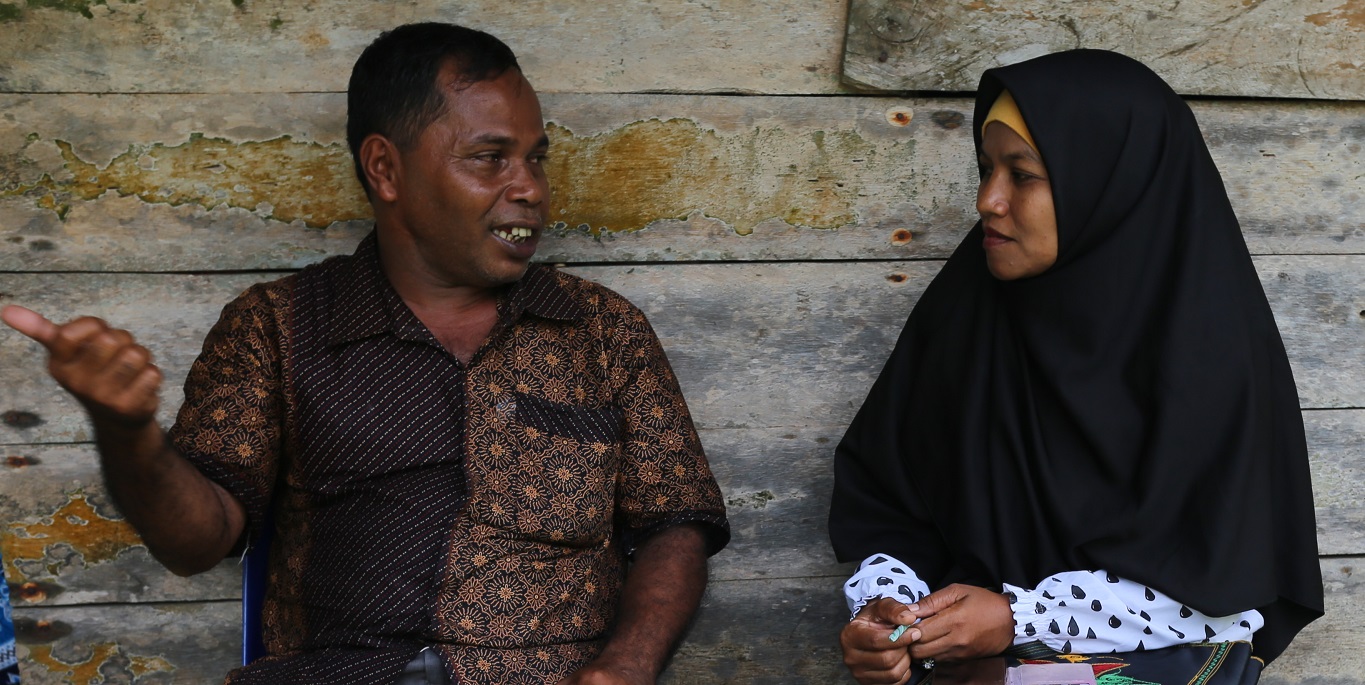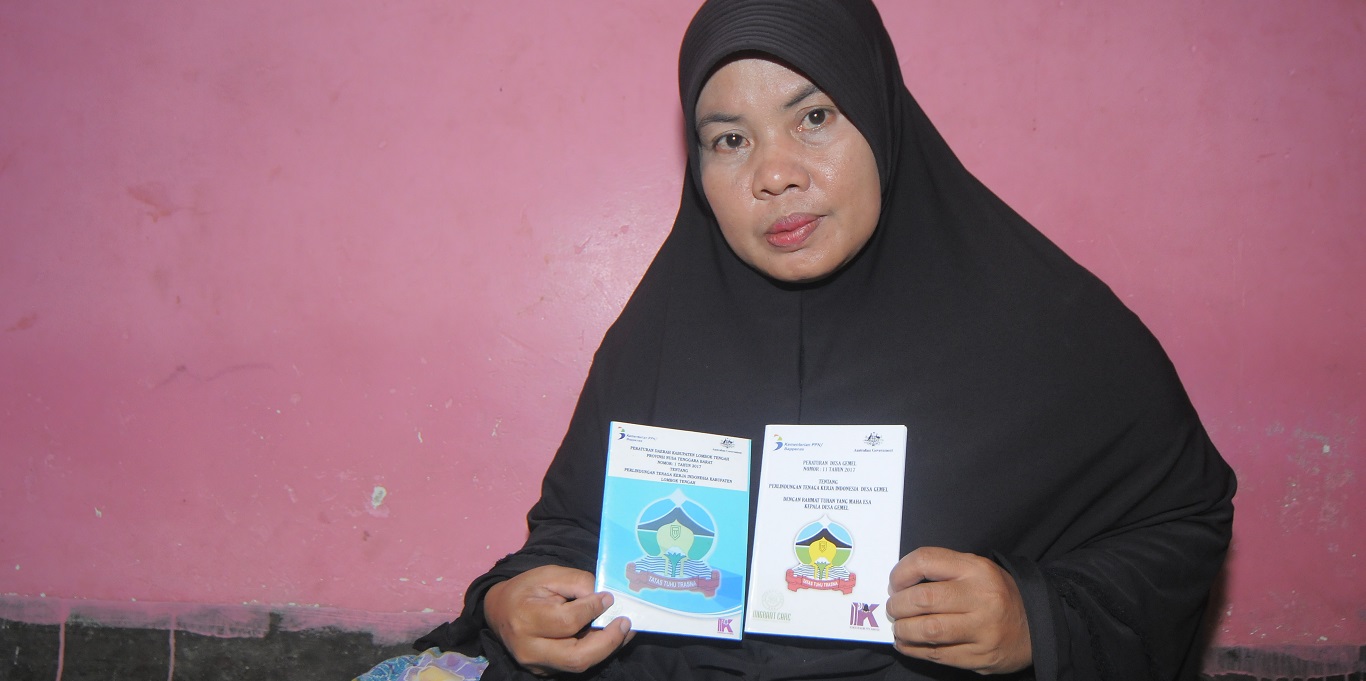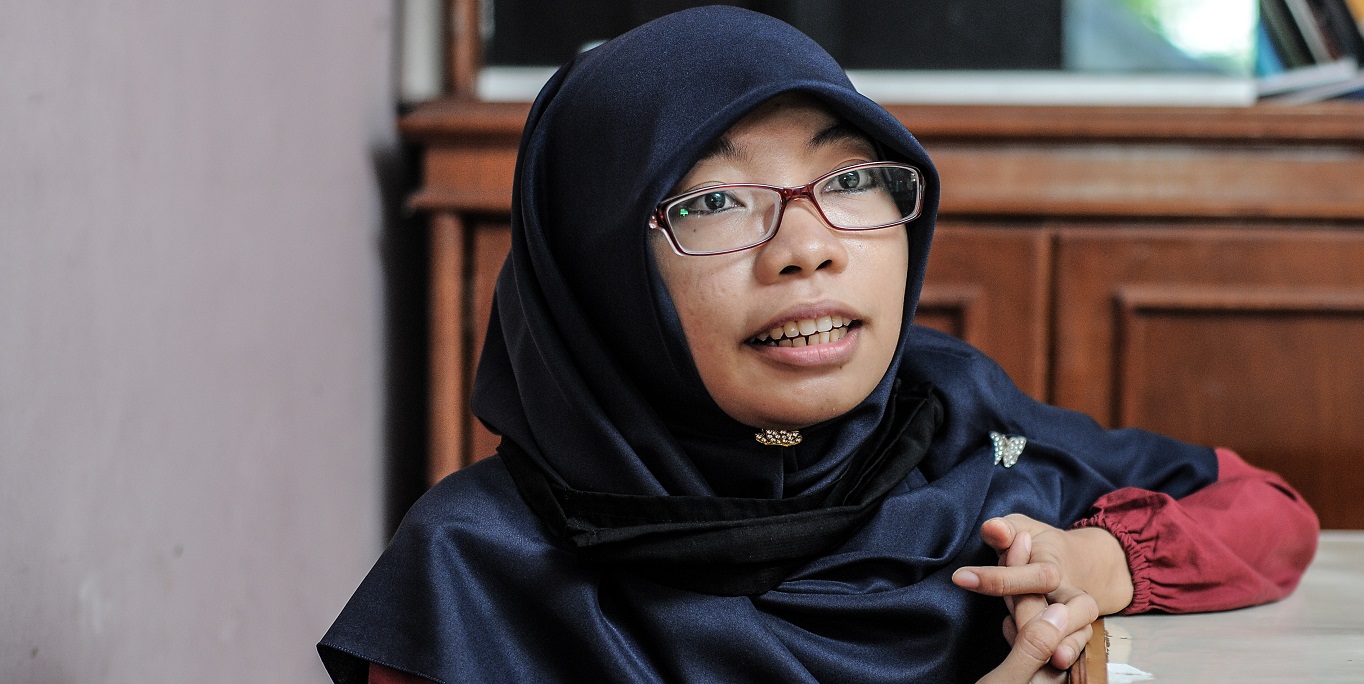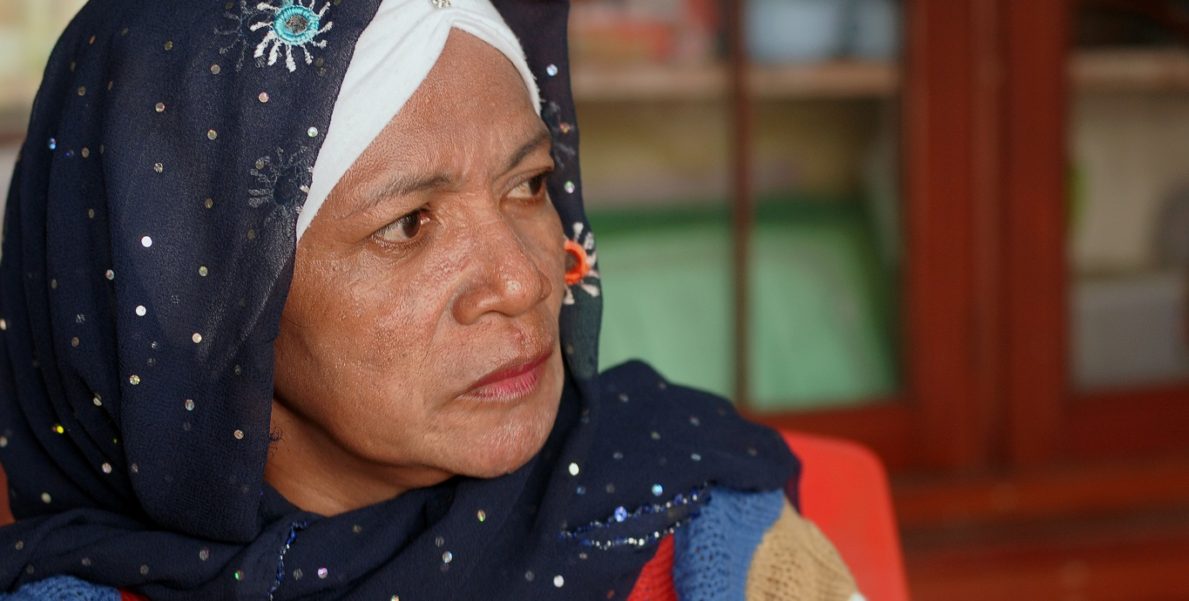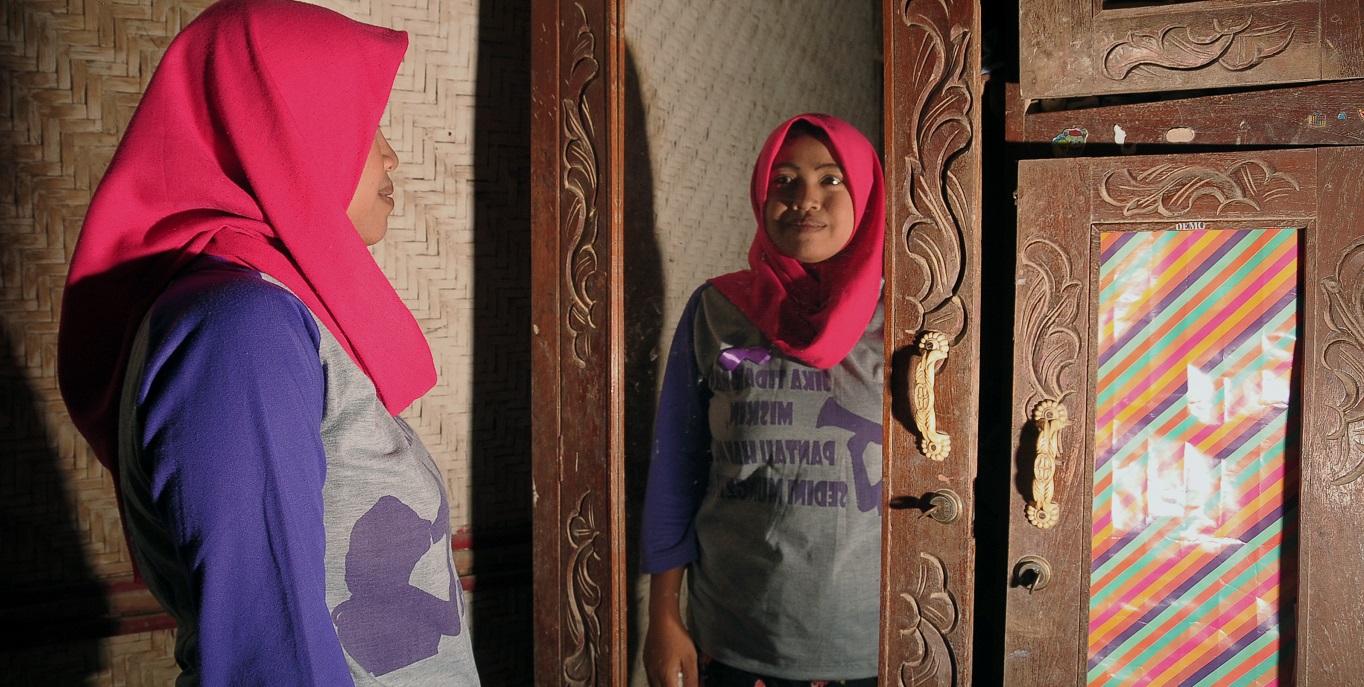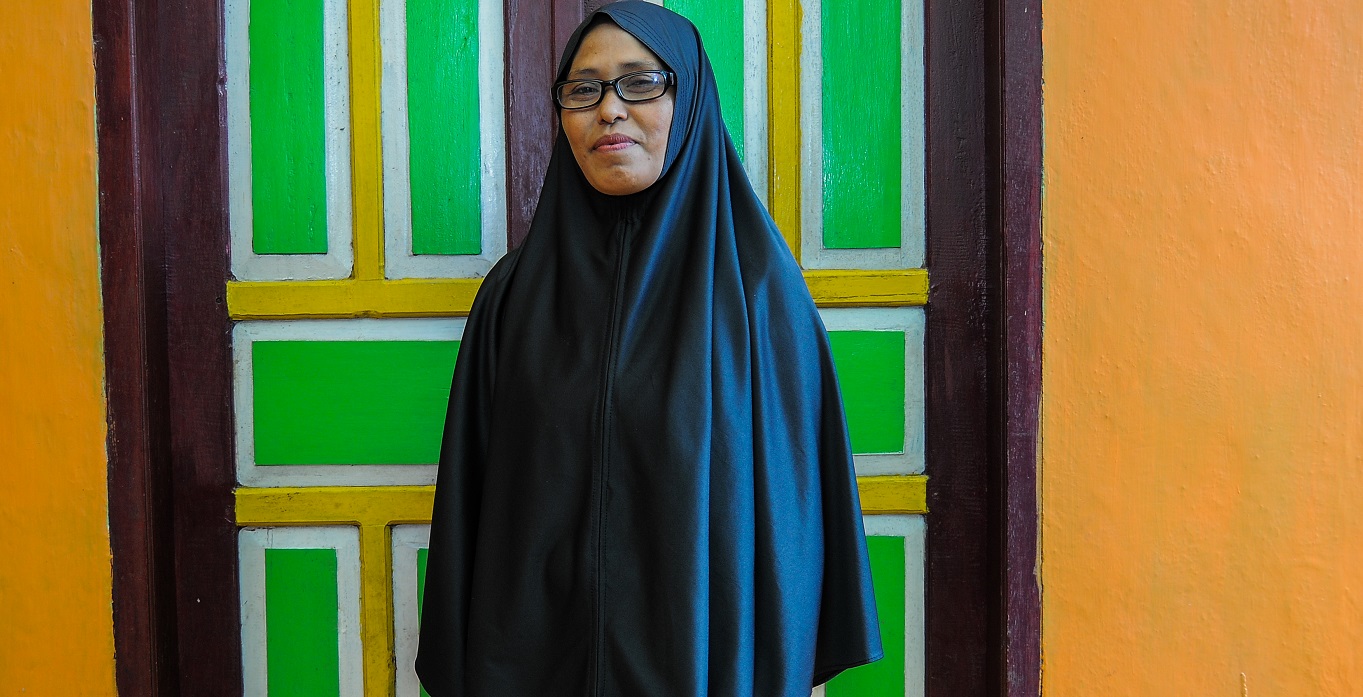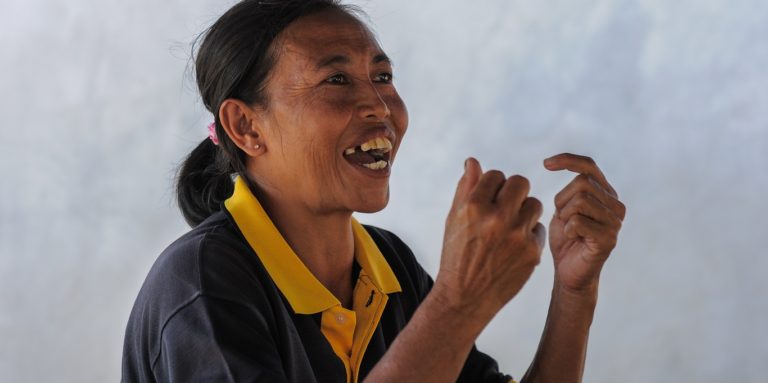Stories
Ibu Syamsiah: If the Husband is not Supportive, Replace Him!
30 December 2016Penulis: admin
That afternoon, Ibu Syamsiah’s house in Kampung Kaili, Bonto Lebang village, South Sulawesi, was packed. Women sat side by side, hunched together, discussing loudly while joking around.
“Once, I asked Ibu Salma, if she’s involved in MAMPU’s activities—what about her husband? Is he supportive or not? Then Ibu Salma told me: if the husband is not supportive, replace him!” Ibu Syamsiah laughed, and the rest of women who gathered that day laughed with her. It was funny that Ibu Syamsiah now could laugh at the joke, remembering that only a few years back, she herself was still facing difficulties with participating in her out-of-house activities, because her husband prohibited her from doing so.
That day, Ibu Syamsiah was leading a regular meeting for MAMPU women in her village. “It’s amazing when we gather together!” she said cheerfully. “We joke a lot, but this is also our regular activity. We’re going to evaluate some of the activities we have conducted, and decide about the next steps to be carried out.”
This 41 year old woman then led the meeting that day with self-assurance. She asked each woman in different groups about their progress regarding the dissemination of information of VIA and Pap Smear tests for early detection of cervical cancer.
“What about Baronang? How many women have taken the test and how many of them haven’t? Cakalang? Bintang Laut? What about Pesisir? Anyone else want to take the test?” , she asked while scribbling down the number of women in reproductive age listed by each group who would take the next VIA test.
“Because this is a fisher’s area, so the name of our groups also use names that are connected to the sea, like Baronang fish, Cakalang fish, Bintang Laut (starfish), and Pesisir (coast),” Ibu Syamsiah explained.
“Okay, so is there anything else you’d like to tell us? Just speak up, don’t hesitate. What are your difficulties? Are there any plans you’d like to carry out? Or from any of you, are there things you’d like to get off your chest that have come up while you’ve been running this activity?”
Looking at her confidence, body language and her assertiveness when leading the meeting that day, it was difficult to imagine that previously Ibu Syamsiah was a shy woman.
“Even to speak up with my own family, I did not have the courage to do that before,”said Ibu Syamsiah. “MAMPU taught us to do this through the trainings and workshops they held. Amazingly, eventhough Ibu Salma and me have already passed the age of forty, before, we had never had a chance to become the delegate at the Musrenbang*. Now, thank God, we have been sent there—even to the District level!”
Ibu Syamsiah admitted that she needed to learn a lot before being able to speak assertively and with confidence like how she is capable now. “Before, we had a training in a hotel, and we were asked to speak in front of our friends, facing each other, and then we were asked to dance and sing,” she laughed.
Ibu Syamsiah’s determination to improve her ability to convey her thoughts and opinions has brought her a sweet reward. She is now active as one of MAMPU’s motivators and an ‘Aisyiyah activist in her village. “At first, we went door to door, from one house to another, and not all of them wanted to have conversation with us, some just did not want to know,” said Ibu Syamsiah. “But, thank God, now a lot of them know about MAMPU. Now a lot of women of child-bearing age want to become members. In the old days, when we’d like to call a meeting, we needed to go to each house one by one. Now we’re cooperating with the Neighbourhood Chief here—we call them from the mosque!”
Seeing Ibu Syamsiah’s activity in her organization, her husband could no longer prohibit her. Not to mention that she had been appointed by the local citizens to become a delegate from the Bonto Lebang village during the district-level Musrenbang* in 2015. Today, her husband is even excited about supporting Ibu Syamsiah to be actively involved in MAMPU’s activities with ‘Aisyiyah.
“There is a lot of knowledge that we can get. For instance, recently someone died in Takala. Since we’d had received briefings on the treatment of the dead, we could help. There was also a man who spoke proudly because his daughter had gotten married at such a young age. Now the women of reproductive age can tell him, it’s not like that in my village, we’ve had briefings about that. When our kids are married at such an early age, it can damage their organs. The man then started asking, what kind of organs?”Ibu Syamsiah explained.
“When we’re going for a medical treatment, women of child bearing agehad also been able to ask the doctor, what is my illness, what it is like, explain it to me. Before, they didn’t have the courage to do this. After being examined, they just took their medicine and went home without knowing what their illness actually was.”
*Musrenbang is an annual process during which residents meet together to discuss the issues facing their communities and decide upon priorities for short-term improvements.
Developed from Most Significant Change story written by Kasma from‘Aisyiyah in Bantaeng Regency, South Sulawesi Province.



